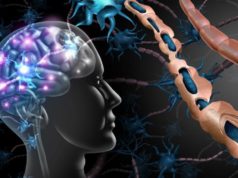Drink lots of water, don’t consume alcohol, avoid eating eggs, take vitamins are some of the nutritional advice that you have been getting for years. Are they accurate? If yes then how far are they true? It is not necessary that all the pieces of advice that you have been getting for years are true.
Here are some nutrition myths and the facts behind them:
1. Eating carbohydrates makes you fat.
Reducing the intake of carbohydrates in your daily diet will definitely offer you short-term benefit of weight loss. This is because of the water loss from the decreased carbohydrate stores. However, eating foods rich in carbohydrates in moderate amounts doesn’t lead to weight gain. The body makes use of the carbohydrates for generating energy. Hence eliminating carbohydrates from your diet for a long time will cause lethargy.
2. Drink 8 glasses of water in a day:
It is true that you need to replace the water lost in excrement, breathing and sweating. But that doesn’t mean that you need to consume 8 glasses of water. It is bit difficult to measure the amount of water that you consume by means of food and drink. Nevertheless if your urine is pale yellow then you are having sufficient water, if it is dark yellow then you need to drink more water.
3. Brown grains are whole grain products:
At times brown dyes as well as additives are used to give foods a misleading appearance of whole grain. Make sure that you read labels to see whether it is whole grain or try to get foods that are equivalents of whole grains to reduce the risk of diabetes, heart disease and stroke.
4. Having eggs raise your cholesterol:
This myth initiated as egg yolks are noted to have high amount of cholesterol. However, it doesn’t have enough cholesterol to pose health risks if eggs are consumed in moderate amounts. Research states that eating one egg in every day will not elevate your cholesterol levels and that egg is a good source of nutrients.
5. All alcohols are bad:
Well again here moderation is the key. Having restrained amounts of alcohol will not pose any kind of adverse health effects to an average healthy adult. All kinds of alcohol are anticoagulant and red wine mainly contains antioxidants. Hence consuming small amount of it on daily basis is beneficial health wise.











